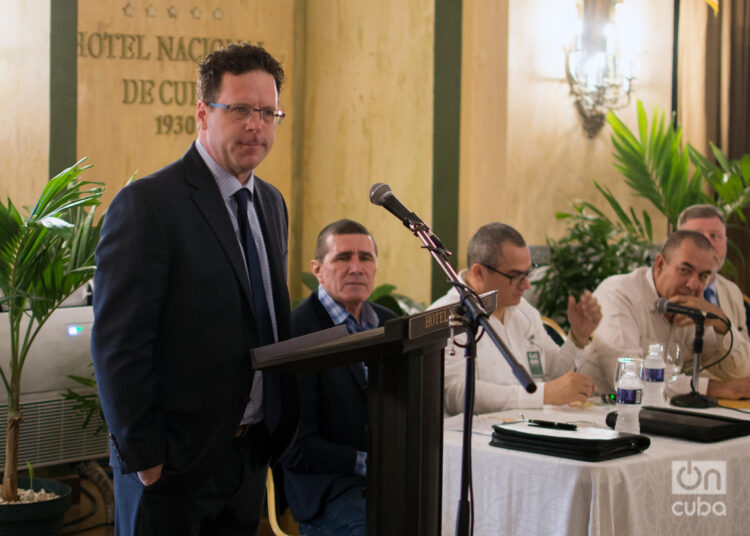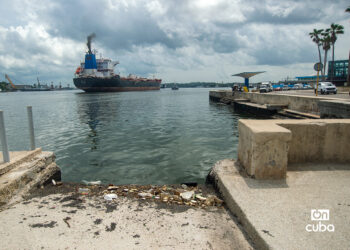For ten years, U.S. agricultural organizations, corporations, and producers have been interacting with Cuban counterparts to boost cooperation between the two countries in trade and food production.
The conferences of the U.S.-Cuba Agricultural Coalition are one of the few remnants of the Obama era when there was a political will between Washington and Havana to advance bilateral relations. The fifth edition of these meetings was held last May.
At present, the state of the ties between the two countries “is terrible”, according to businessman Paul Johnson, an active advocate of a change in policy towards the island among the business and political communities since his role as president of the U.S.-Cuba Agricultural Coalition.
Days after the recent session of these exchanges in Havana, he spoke with OnCuba. Johnson took postgraduate studies in Cuba in the 1990s, and since then, has closely followed the reality of the country.
The U.S.-Cuba Agricultural Coalition is ten years old. Five conferences have been held since 2018. What have been the milestones and major agreements in this period?
In 2016, we signed a memorandum of understanding with the Grupo Empresarial Agrícola (Agricultural Business Group), our counterpart in Cuba since then.
That was a big achievement because we have been able to deepen our relationship with the group and have developed and continued to work on some projects, whether it is U.S. agricultural exports or finding ways to increase local agricultural production.
And mainly, we have continued our communication and have done these conferences where we get together every year like we just did recently. So, the big achievement I can note is the memorandum of understanding that was signed in 2016 and what is sprung from that. The other thing is consistency. We have been consistent in our interactions with Cuban agriculture, and we have made some trade.
So, it’s not as much as we would like to do, but we have brought commercial business together with partners here in the United States and Cuba. And then I think at the political level, we have continued to raise the awareness of the need for deeper relations, agricultural relations, between our two countries and where there are areas of mutual concern.
You call the memorandum signed eight years ago a major achievement. Can anything more be pursued?
We are always looking for improvements. We have clear restrictions on our travel, trade and investment. There is a lot more that we would like to do.
But I will say that under the current policy and the regulations and the restrictions that we have, we have done a lot. We have not only these conferences and we have increased trade and brought buyers and sellers together, but we advocate for more U.S. Department of Agriculture and Ministry of Agriculture exchanges, which we think are happening.
We look to talk about common problems such as plant and animal health diseases and how they can be spread between both countries very easily. We need to be more aware of that. We talked about our shared natural resources and how we can work together to protect them.
We have advocated for two-way trade because most of what we do is one-way, and that is no trade at all. Now, we have come short on that because we still are not importing more agricultural goods from Cuba, but it is certainly something we have been advocating for the last 10 years.
We have worked on some projects like increased production, such as introducing different varieties of seed potatoes in Cuba. We have had some exchanges on the scientific and academic fronts between both countries.
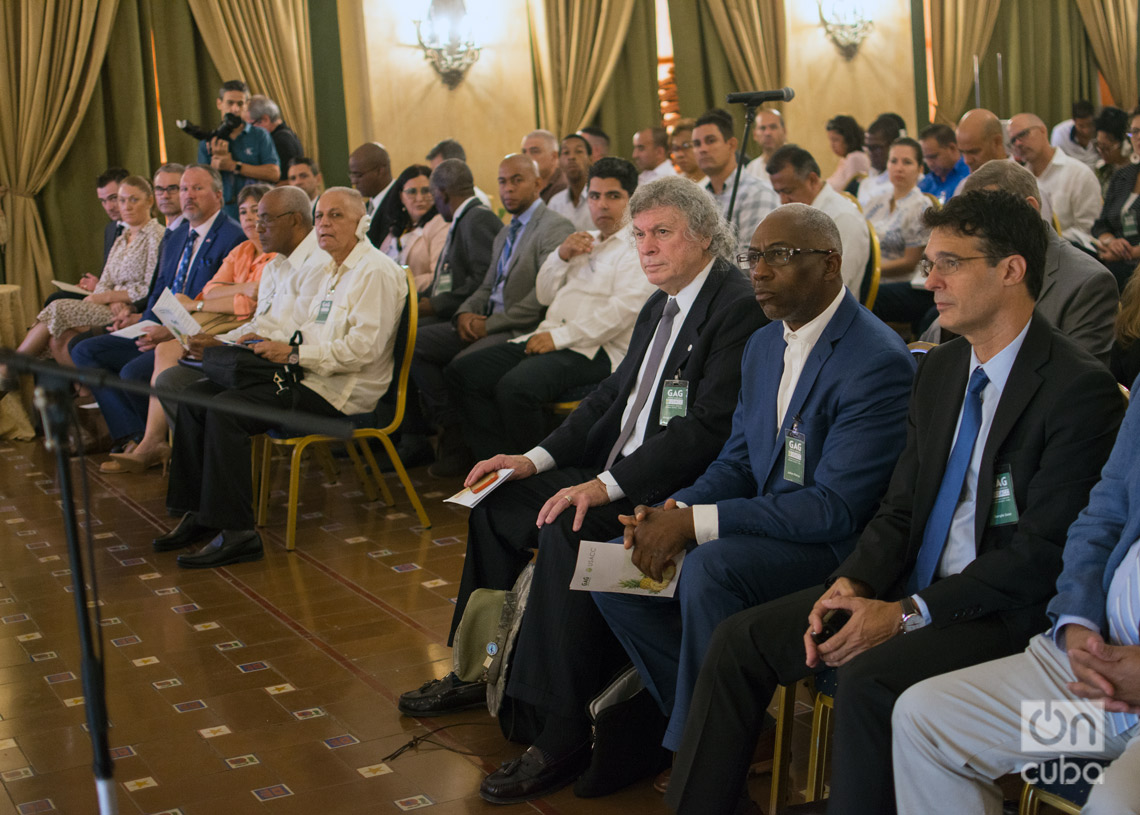
What is the future of this relationship between this coalition of U.S. and Cuban farmers?
We need to recognize the food crisis. I think this is the most important part. On our side, we need to work on getting Republicans and Democrats together on a common space that can address the current acute food crisis in Cuba.
We can talk about a range of issues that we would like to happen, such as ending the embargo, removing Cuba from the list of state sponsors of terrorism, and so forth. Maybe the last one will happen, but I do not see anyone talking about an end to the embargo, realistically. I do not see that political environment today.
So, what we need to do is find common ground between Republicans and Democrats. And I think that a narrow approach to addressing the food crisis, increasing engagement between the U.S. Department of Agriculture and the Ministry of Agriculture to alleviate or improve local agricultural production and trade will solve a problem that Cubans face now, which is also resulting in mass migration.
We saw the same food crisis happen in the 1990s. I was in Cuba in 1995. I remember it. It happened because of the lack of agricultural production. Our concern is that it could lead to more serious problems with diseases. And we need to make sure that doesn’t happen. To prevent this from happening, we need a deeper relationship between USDA and the Ministry of Agriculture, between agriculture producers and trade groups here in the United States and our counterparts in Cuba.
We need to deepen our relationship with agricultural producers in Cuba to see how we can help them to increase local production. And we are not doing that right now. I do not think our side really understands or knows those people in Cuba. I know there are a bunch of restrictions on the Cuban side as well to allow the producers to import and export more and increase their local production.
And there is a range of issues that affect this. There is blame on both sides. But we are less interested in finding who to blame and more interested in finding concrete solutions to solve the current crisis, which honestly impacts everybody.
That requires political will. How would you describe the current state of U.S.-Cuba relations?
Terrible. I would say that we are far from where we need to be able to address common concerns. The most obvious concerns are that there is a food crisis in Cuba. And as a result of that crisis, we have seen anywhere from six to 10% of Cuba’s population leave the country in the last two years.
How have the different administrations impacted collaboration with Cuba in this area since 2014?
When Obama came about, it created a lot of excitement, opportunities, and momentum. I thought he had the right approach to engaging Cuba. Within that approach, there were more and more opportunities for us to move past the embargo and start working on projects to benefit agriculture production, trade and investment.
But what we learned was that it is going to take Congress. It was great to have a president who engaged and cared about the issue. We have not had that since. But what we discovered was an executive order from the president is only as good as the amount of time he remains in office. So that ended. And with Obama’s presidency, and with it, all the initiative, the momentum that we gained was rolled back. And we have not recovered from that.
The one advantage we have as agriculture that other sectors do not is we have a federal law that was passed in 2000, the Trade Sanctions Reform and Export Enhancement Act that allows us to export food to Cuba. We have been sort of shielded by the different opinions of politics and administrations, presidents, and Congress, because of this law. That is our thread, which insulates us from sort of changing political wills.
What has changed in Cuba and what has changed in the U.S. since the establishment of the Agricultural Coalition in 2014?
The most significant change has been on the Cuban side. On the U.S. side, I do not think we have changed much. In fact, we have gone backward in our political relationship with Cuba since then.
I would say that the most important change that I have seen in 10 years is the development of Cuba’s private sector, which includes its farm cooperatives. And that is a significant economic model shift in Cuba that has direct implications for our agricultural relations.
How we trade, who our buyers are, how we can work with farm cooperatives to increase local production. All of that has been changed because of the change in the constitution of Cuba in 2021 to allow for these MSMEs. And I think that we have a long way to go before we understand the profound changes that are taking place within Cuba.
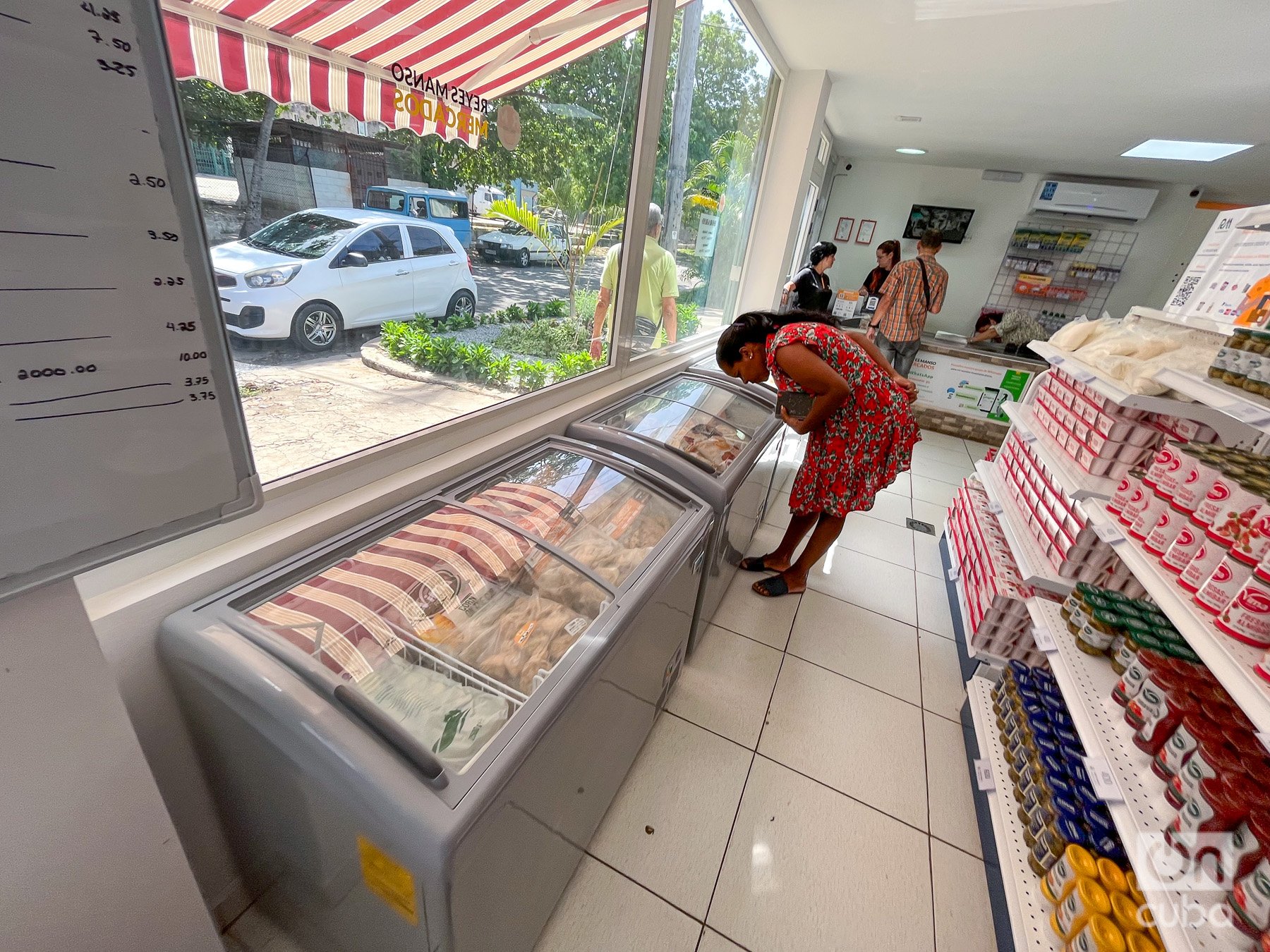
Do you agree with the idea that the Cuban private sector is real?
Of course, they are real. There are 11,000 of them. I have met a number of them. They are young entrepreneurs, dynamic. They are learning. They are growing. They are expanding. They are looking for new opportunities within their country. And of course, they are real.
Could the U.S. government be more open to cooperating with the private sector in Cuba?
It is slowly changing. There is part of the population who has no idea that exists cooperation. There is another part who understands it and is taking advantage of it. I mean, we are seeing a tremendous number of exports to Cuba’s private sector in the last 12 to 18 months.
And then, there is another part of the population who just does not believe that exists cooperation. I think that 60 years of Cuban politics have jaded people to believe that change is possible or that Cuba’s socialist state-run economy could permit a legitimate private sector without rolling it back in the future, which they have done in the past.
So, I think there is part of the population who is jaded, who is cynical, who is weary, and leery of this change that is actually happening in Cuba. And I totally understand that. But what they do not realize, in my opinion, is that this new change is legitimate. It is been part of Cuba’s constitution. And what is most exciting about this is that this is the new revolution.
Our side is still thinking in terms of the revolution of 1959 and those contexts, in those terms. So, we look at Cuba’s revolution and its shortcomings, and we want to talk about the failures of the revolution. What we are not talking about is that there is a new revolution that has taken root in Cuba. And that revolution is the revolution of young entrepreneurs who are taking control of their situation, who are transforming their country, who are improving, growing, expanding, and learning, despite the obstacles from the United States or their own country.
That is the new revolution that we need to get a hold of and understand, rather than talking in terms of the revolution of 1959, communism, socialism, capitalism, and those restrictions of how we see Cuba today. We need to educate our side on those realities. And We are just behind. Our side does not get it. We have not fully grasped it.
A recent coalition report talks about $300 million in exports to Cuba, with a notable increase in the private sector. What does this sector represent for the coalition and the agricultural relationship between the two countries?
Two things. First, as you said, we exported nearly $350 million of agricultural goods last year. Ninety percent of that is poultry meat. We estimate that poultry meat coming from the U.S. represents about 40 percent of what Cuba’s need for their daily protein needs.
So, what we noticed, though, is not only that we continue to sell protein to Cuba, but the variety of products that are being exported to Cuba has increased along with the development of Cuba’s private sector. And that is because there are new buyers.
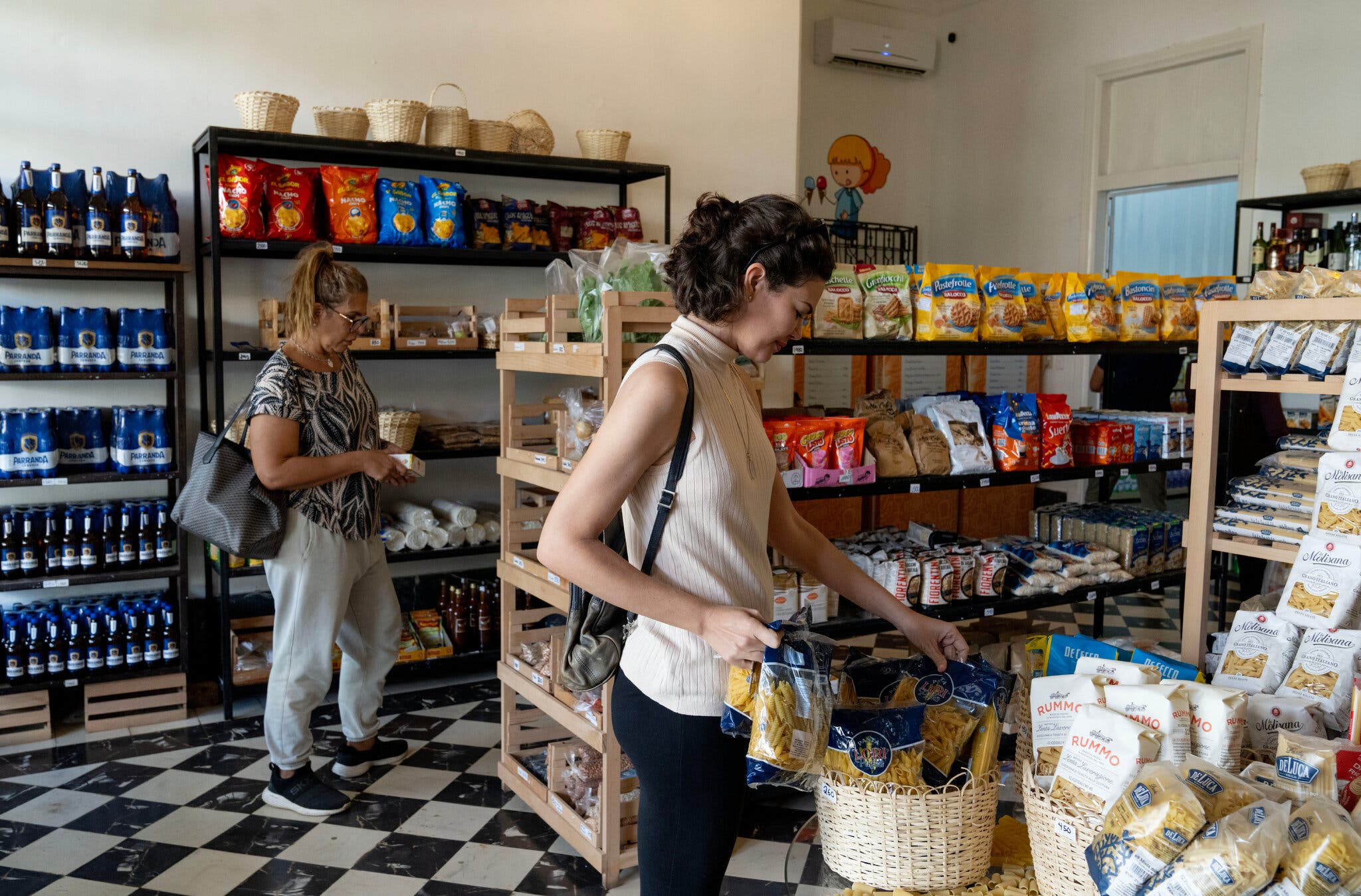
Before the MSMEs came about, we would only sell to Alimport, which is the state agency responsible for food imports from the United States. We went from one buyer to hundreds of buyers. And that has created a lot of new opportunities for our exporters. And we are still trying to figure out who those buyers are and how we can get trade deals done.
Our agricultural trade with Cuba is restricted. Although we can export food, we have federal restrictions that do not allow us to offer credit to Cuba. Because of that restriction and other general politics in our policy towards Cuba, we are only selling about $350 million of food goods when Cuba is purchasing nearly $2 billion in food from suppliers around the world. We believe that we could do four times more exports to Cuba if we had normal relations.
Right now, that $350 million represents about 15% of what Cuba buys from suppliers around the world. We think we can get to 60%. And we say that because of proximity. We could be more competitive with other suppliers on that alone.
Is the coalition interested in promoting local food production in Cuba or only exporting to the island?
Increasing local production offers some opportunities. First, it would help to solve the problem of food insecurity. And second, there are investment opportunities for that, whether that’s investing in inputs, distribution, rail, trucks, infrastructure, cold chain storage. It decreases post-harvest loss, which is a big problem in Cuba today.
These are areas of concern where a lot of groups in the United States work all over the world. Cuba should be no different from that, whether it is because they have a humanitarian interest in seeing it improved or a financial interest. There are lots of groups that would like to do more in Cuba.
Cuba has a lot of land, a lot of sun, enough rain. They have problems that we have, as far as the number of farmers that are willing to work in the fields. Nonetheless, we see Cuba as holding a lot of potential, agricultural-wise. So, yes, we would be very interested in finding ways to increase local production.
Is there a place in the U.S. market for Cuban products? Could the new Cuban entrepreneurs export to the U.S. market?
We have obstacles for that to happen. Processed goods have a better chance of being imported into the United States, but anything fresh would require plant and animal health authorities from both sides to get together to do research, as we do all over the world. And that could take years.
We only start to resolve that by getting more USDA and Ministry of Agriculture collaboration. But this is still tough because there is a list of allowable products to be imported, and that product list is really extensive as far as what products are restricted from entering the United States.
The other problem is the need for a specific license from the U.S. Treasury to engage the private sector and go into business to import goods. Those permissions, whether it is from Cuba or the U.S. Treasury, are not happening. Neither side has approved any joint ventures or investment opportunities in agriculture. Both sides are laying blame on the other.
We are a long way from importing goods from agricultural products from Cuba to the United States. In the future, if we have a more normal relationship, I can envision a range of agricultural products such as tobacco and rum, organic fruit and vegetables, aquaculture, coffee, honey, and medicinal products.
In statements to the EFE news agency, the Minister of Agriculture said that Cuba is open to trade with the U.S. and that the problems come from the U.S. side. What is your opinion?
We are the ones with the embargo. Cuba could do more to make trade easier and allow their farm cooperatives to import and export directly. They can do more also in what they are investing in. I mean, they invest in a lot of vacant hotels and the hotel sector, and they do not invest enough in their own agricultural production.
Although I think there is blame on both sides, the minister has got a good point. We are the ones that have the law that restricts us from doing more. And I would say that Cuba has made some important strides, specifically with the MSMEs, and our side has not reciprocated.
Cuba has shown a path forward. It is not perfect but rather than continuing to criticize the limitations of the MSMEs in Cuba, what we should do is find out how we can support them and grow them.
Apparently, on the way to achieving a more normal relationship, the Biden Administration announced measures aimed at the private sector. What do you think about these?
The regulations are positive. It is our government recognizing that there is a private sector in Cuba and that we need to support them. Of course, it raises a lot more questions. For example, the banking. How does that work? If an entrepreneur does not have a visa to come to the United States, can they open up a bank account? Will banks actually do this? I want to get clarity on when they mention cooperatives, does that include farm cooperatives? So, I put a question out to the State Department.
Finally, there are a lot of questions about whether will we be able to work with the private sector that is linked to the state sector in Cuba. Specifically on the food side, Cuba works with linked structures (encadenamientos). So, would we be able to work with an MSME that works with a state company to improve food processing, for example?
Expectations, hopes and uncertainty: reactions to U.S. announcements for entrepreneurs
We are glad our government is acknowledging a private sector, giving us more room to do more. Naturally, it brings up questions of how Cuba is going to react to this.
The Cuban Ministry of Foreign Affairs has said that, if these measures do not affect what is established by Cuban law, they are open. But they also referred to the fact that U.S. sanctions persist and that the measures are limited.
That is all true. We need to continue advocating for the end of the embargo. But the political reality in the United States is that it is going to be a step-by-step approach.
If we are going to have any chance of bringing Republicans and Democrats together, I think the issues have to be very narrow, and they have to be around the food crisis, immigration, and the private sector. Those are the issues that Republicans are more willing to address. And that is exactly how we did it in 2000 when we passed the Trade Sanctions Reform Act to allow us to export. It was the humanitarian aspect that finally got Republicans to talk about Cuba. I see this as similar.
If we want to talk about the big picture, we need to. But I think we also need to focus on the reality of the political world in the United States and its narrowness. Incremental changes are the only approach that could get any traction.
You have been to Cuba several times and have even lived in the country. What is your opinion on the sanctions in force and Cuba’s permanence on the list of countries sponsoring terrorism?
I do not think there is any legal or moral standing for Cuba to be included on a list of state sponsors of terrorism. I think it is a political maneuver that is threatening not only to Cuba but to our own U.S. interests when we start to diminish or alter the definition of what a true terrorist is.
The sanctions we have in Cuba are outdated. They no longer serve a purpose. The reasons for the embargo need to be readdressed. If the purpose of the sanctions was to bring the Cuban economy to its knees and collapse it, well, then they have achieved this purpose. So now what? What is the next step?
We need to reframe the debate and engage Cuba in a new way with the mindset of defining future goals that we have not been able to do because we are still stuck in this timeframe, this context of 1959. And it is no longer 1959. It’s 2024. And there is a new generation of Cubans that are defining the future.
We always tend to see Cuba as a monolith where it is just the communist government. But we fail to see that Cuba is composed of 11 million individuals that have a civil society, have farmers, have NGOs, have a private sector. And that is where we need to focus our efforts on rather than the Cuban government.
What can be done in Cuba, despite the U.S. sanctions, which, as you have said, are not going to change for the time being?
Allow their producers to have more autonomy. They need to get paid for what they produce. They need to be able to import and export directly. You cannot go to the countryside and demand that farmers produce more without paying them more.
The solution is paying them and making sure they have the needed inputs to grow. They have to make profits to continue to grow. Expecting the opposite by doing the same thing is something that will never work.
What would be the ideal collaboration between Cuba and the United States in agricultural matters, taking into account the Cuban economic context?
How do we solve the food crisis? How do we increase Cuban local production? That is number one.
Number two is trade. It is going to take time to increase local production. In the meantime, to get the needed food into Cuba, you have got to trade. Improving those channels, improving two-way trade is important to address this crisis and the daily needs of Cubans. That is paramount.
But while we talk about trade and capital flows, food flows, logistics, and the rest of it, we need to talk about how we solve the problem of local Cuban production. Because they currently import 70 percent of what they eat, and that is not sustainable for any country.
Agriculture production is national security for every country. It is essential. And for us to have a stable, thriving, healthy Cuba, they need to produce more.

